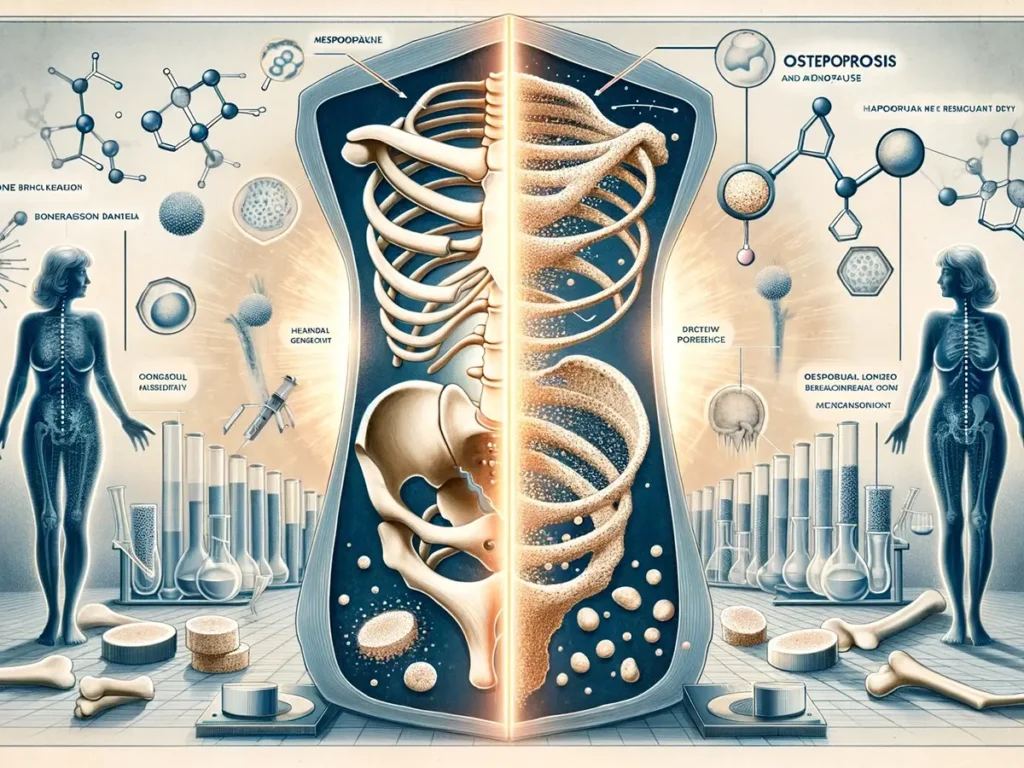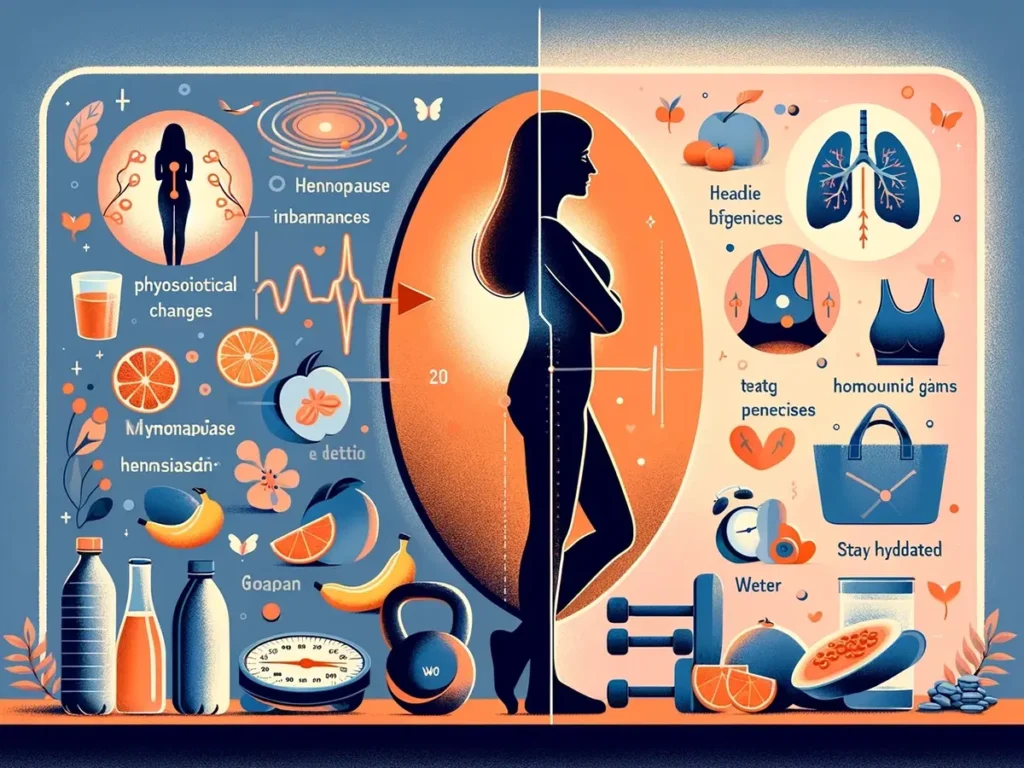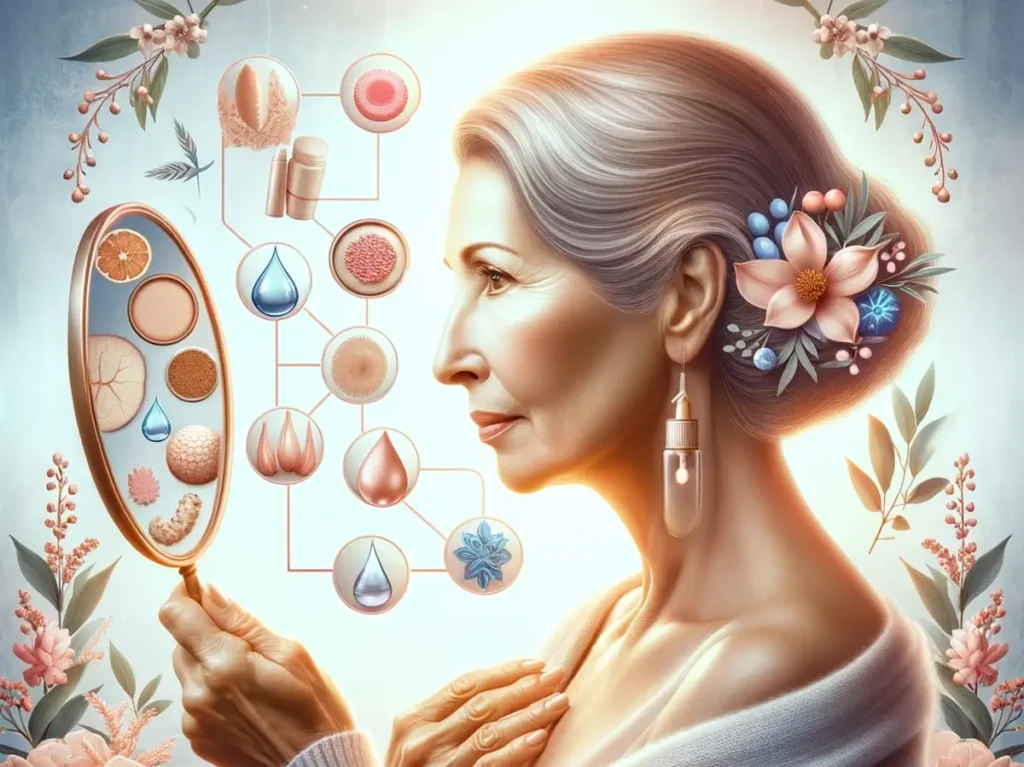Menopause is a natural biological process that all women experience, typically occurring in their late 40s to early 50s. Along with the well-known symptoms such as hot flushes and night sweats, menopause can also bring about significant changes to the skin. These changes can be unsettling for many women, but understanding what to expect can help manage them effectively. In this blog post, we will research the typical skin changes that accompany menopause and provide tips on caring for your skin during this stage of life.
Key Takeaways:
- Menopause can cause significant skin changes: Hormonal fluctuations during menopause can lead to various skin issues such as dryness, thinning, and increased sensitivity.
- Loss of collagen and elasticity: During menopause, the skin produces less collagen and elastin, leading to sagging and wrinkles.
- Increased risk of skin conditions: Menopausal women may be more prone to conditions such as adult acne, rosacea, and pigmentation changes.
- Importance of skincare routine: A consistent skincare routine with products that hydrate, protect, and boost collagen can help mitigate the effects of menopausal skin changes.
- Consult a dermatologist if needed: If menopausal skin changes significantly impact your quality of life, consulting a dermatologist can help you find the right treatment options.
Hormonal Shifts and Their Impact on Skin
Estrogen and Skin Health
Estrogen is crucial in maintaining skin health by promoting collagen production and keeping skin thickness. During menopause, the decrease in estrogen levels can reduce collagen production, resulting in thinning skin, increased dryness, and reduced elasticity. These changes can contribute to developing fine lines, wrinkles, and sagging skin.
Other Hormonal Fluctuations
Aside from estrogen, other hormones such as progesterone and testosterone can also fluctuate during menopause, further impacting the skin. Progesterone levels typically decrease, leading to an imbalance in estrogen levels. Testosterone levels may also decrease, affecting oil production and potentially leading to increased acne or unwanted facial hair. These hormonal fluctuations can contribute to a variety of skin issues that women may experience during menopause.
Common Skin Changes During Menopause
Dryness and Loss of Elasticity
One standard skin change women experience during menopause is dryness and a loss of elasticity. This is due to a decrease in the production of collagen and elastin, which are responsible for maintaining the skin’s firmness and elasticity. The skin becomes dryer and less supple as oestrogen levels decline, leading to a dull appearance and increased sensitivity.
Wrinkles and Fine Lines
Another prevalent skin change during menopause is the development of wrinkles and fine lines. These visible signs of ageing are mainly caused by the decrease in collagen and elastin production and the natural ageing process. Wrinkles and fine lines are most commonly seen around the eyes, mouth, and forehead and can be exacerbated by factors such as sun exposure, smoking, and poor skincare habits.
It is essential to care for your skin during menopause, such as using moisturisers with ingredients like hyaluronic acid and retinol to hydrate and stimulate collagen production. Additionally, wearing sunscreen daily, avoiding smoking, and maintaining a healthy lifestyle can help minimise the appearance of wrinkles and fine lines.
Management and Care for Menopausal Skin
Skincare Routines and Products
During menopause, it is crucial to adapt your skincare routine to meet your skin’s changing needs. Look for products that are hydrating, gentle, and enriched with antioxidants to help combat the effects of hormonal changes. Incorporating a consistent regimen of cleansing, toning, moisturising, and using sunscreen can help maintain your skin’s health and appearance.
Lifestyle Adjustments for Skin Health
Aside from skincare products, lifestyle adjustments can significantly impact the health of your skin during menopause. This includes staying hydrated by drinking plenty of water, eating a balanced diet rich in antioxidants and vitamins, getting regular exercise to improve circulation, managing stress levels, and ensuring adequate sleep. These adjustments can enhance the overall health and radiance of your skin.
Coping with Emotional and Physical Challenges
Self-care and Emotional Support
During menopause, it is crucial to prioritise self-care and seek emotional support to navigate the challenges that come with this significant life transition. Engaging in regular physical activity, practising relaxation techniques such as mindfulness or yoga, and maintaining a healthy diet can help alleviate symptoms and improve overall well-being. Additionally, connecting with friends, family, or a support group can provide valuable emotional support.
Professional Treatments and Therapies
Professional treatments and therapies can also play a vital role in managing menopausal symptoms. Consulting with healthcare professionals such as gynaecologists or dermatologists can help explore options like hormone replacement therapy (HRT) or skincare treatments to address specific skin concerns. Other therapies, such as cognitive-behavioural therapy (CBT), can be beneficial in managing mood swings or anxiety that may arise during this period.
Professional treatments and therapies offer targeted solutions to manage both the emotional and physical aspects of menopause. While self-care practices are crucial for daily well-being, seeking professional guidance can provide tailored treatments to address specific challenges faced during this transitional phase.
Menopause and Skin Changes – What to Expect
As women go through menopause, it is expected to experience various skin changes due to hormonal fluctuations. These changes may include dryness, thinning, wrinkles, and sagging. It is crucial to properly care for your skin during this time by staying hydrated, using gentle skin care products, protecting against sun exposure, and maintaining a healthy lifestyle. Consulting with a dermatologist can also guide how to manage and minimise the effects of menopausal skin changes. Understanding what to expect and taking appropriate steps to care for your skin can help maintain its health and appearance during this natural phase of life.
FAQ
Q: What skin changes can occur during menopause?
A: During menopause, women may experience skin changes such as dryness, thinning, wrinkles, and loss of elasticity due to declining oestrogen levels.
Q: Why does menopause cause skin changes?
A: Decreased oestrogen levels during menopause can reduce collagen production, which is imperative for skin elasticity and moisture retention.
Q: How can menopausal skin dryness be managed?
A: To manage menopausal skin dryness, it is essential to use gentle hydrating skincare products, avoid hot showers, and stay well-hydrated by drinking plenty of water.
Q: Are there any treatments for menopausal skin changes?
A: Various treatments are available for menopausal skin changes, including hormone replacement therapy (HRT), topical retinoids, and collagen-boosting skincare products.
Q: What lifestyle changes can help improve skin health during menopause?
A: To improve skin health during menopause, it is recommended to follow a balanced diet rich in antioxidants, avoid smoking, limit sun exposure, get regular exercise, and manage stress levels effectively.






